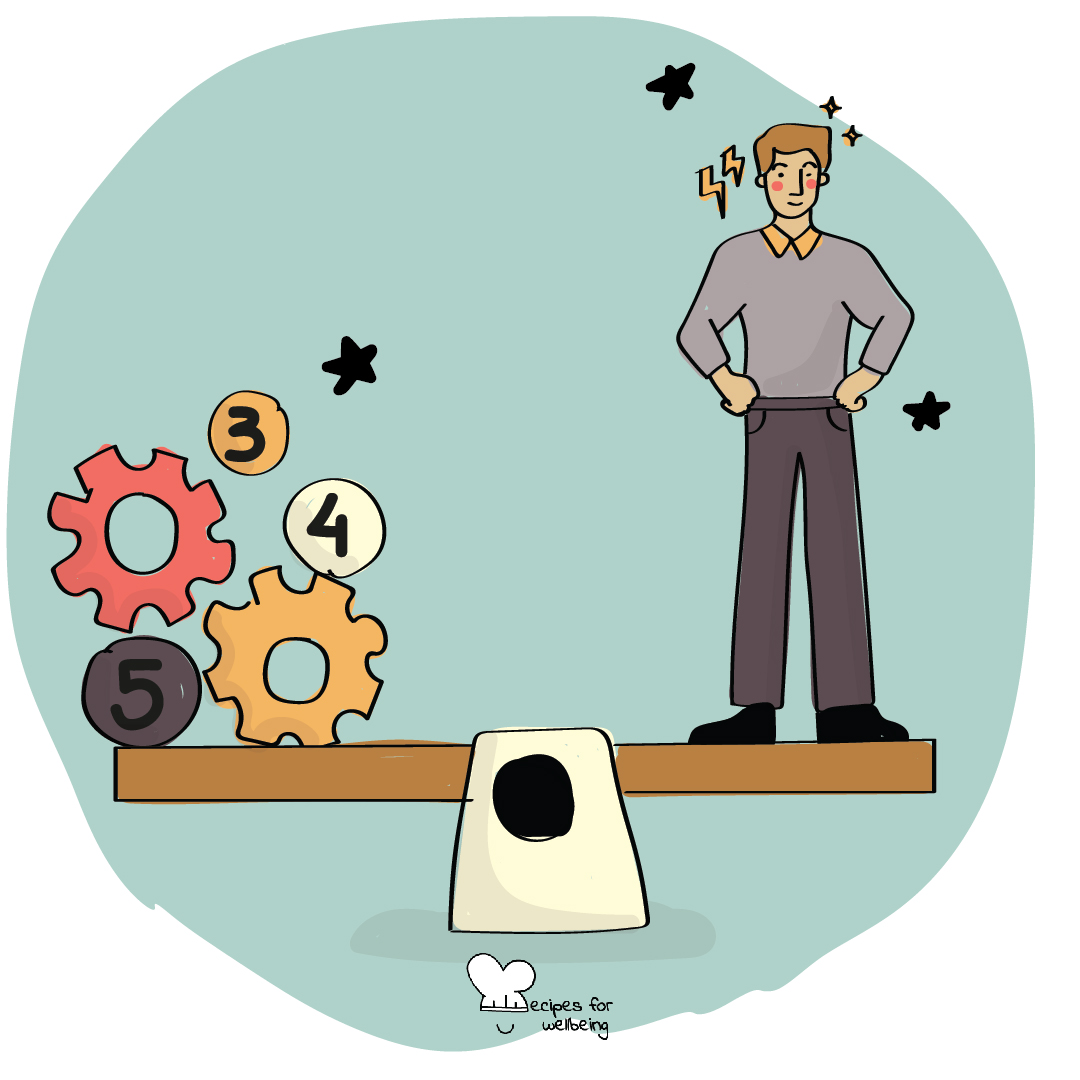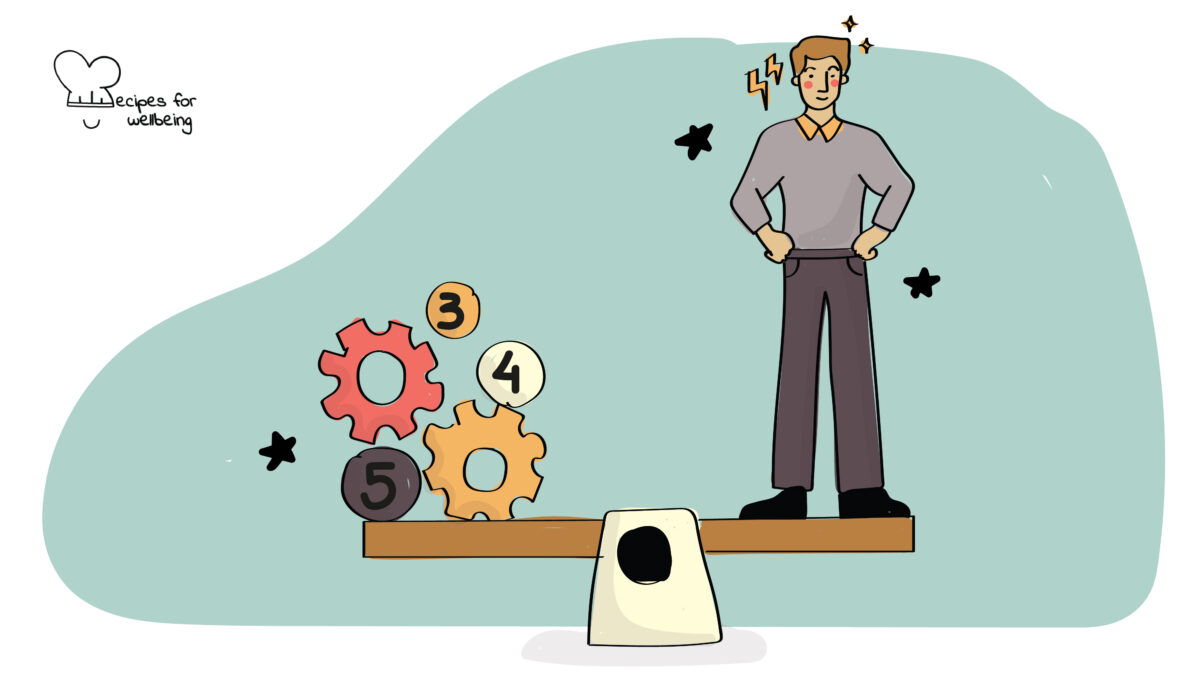
Brief Resilience Scale
Do not judge me by my success, judge me by how many times I fell down and got back up again. ―Nelson Mandela
👥 Serves: 1 person
🎚 Difficulty: Medium
⏳ Total time: 11-30 minutes
🥣 Ingredients: A sheet of paper (even a sticky note), a pen, a calculator (if maths is not your friend!)
🤓 Wholebeing Domains: Awareness, Discomfortability, Positive Emotion
💪 Wholebeing Skills: Compassion, Perspective, Reflection, Relief, Resilience, Self-awareness, Stress management

Brief Resilience Scale
📝 Description
Assess your ability to bounce back.
The Brief Resilience Scale (BRS) is a quick and simple self-assessment tool to help you evaluate your level of resilience, meaning your perceived ability to bounce back or recover from stress. The scale consists of six statements for you to express to what extent you agree or disagree with them. When completed, it gives you a resilience score of between 6 and 30, where higher scores indicate higher levels of resilience.
👣 Steps
Step 1 – Self-assessment (5’)
Take a few minutes to answer the following statements, rating them a scale from 1 to 5 (1 = strongly disagree, 2 = disagree, 3 = neutral, 4 = agree, 5 = strongly agree) for Qs 1, 3, and 5 and 5 to 1 (5 = strongly disagree, 4 = disagree, 3 = neutral, 2 = agree, 1 = strongly agree) for Qs 2, 4, and 6.
- I tend to bounce back quickly after hard times.
- I have a hard time making it through stressful events.
- It does not take me long to recover from a stressful event.
- It is hard for me to snap back when something bad happens.
- I usually come through difficult times with little trouble.
- I tend to take a long time to get over set-backs in my life.
Step 2 – Scoring (5’)
Now add the responses – you should get a number ranging from 6 to 30. Then divide the total sum by the total number of questions, so six. Here is how to interpret your scores:
- 1.00–2.99 • Low resilience
- 3.00–4.30 • Normal resilience
- 4.31–5.00 • High resilience
Step 3 – Self-reflection (10’)
Take a few minutes to reflect on your score: What does it say (or not say) about your ability to bounce back and recover from stress? Which situations are particularly triggering for you? What has helped you in the past to bounce back?
Step 4 – Monitoring (ongoing)
This self-assessment can be repeated over time to track changes in your level of resilience. For instance, you could take this test before implementing any strategies and a few weeks later to check your progress.

